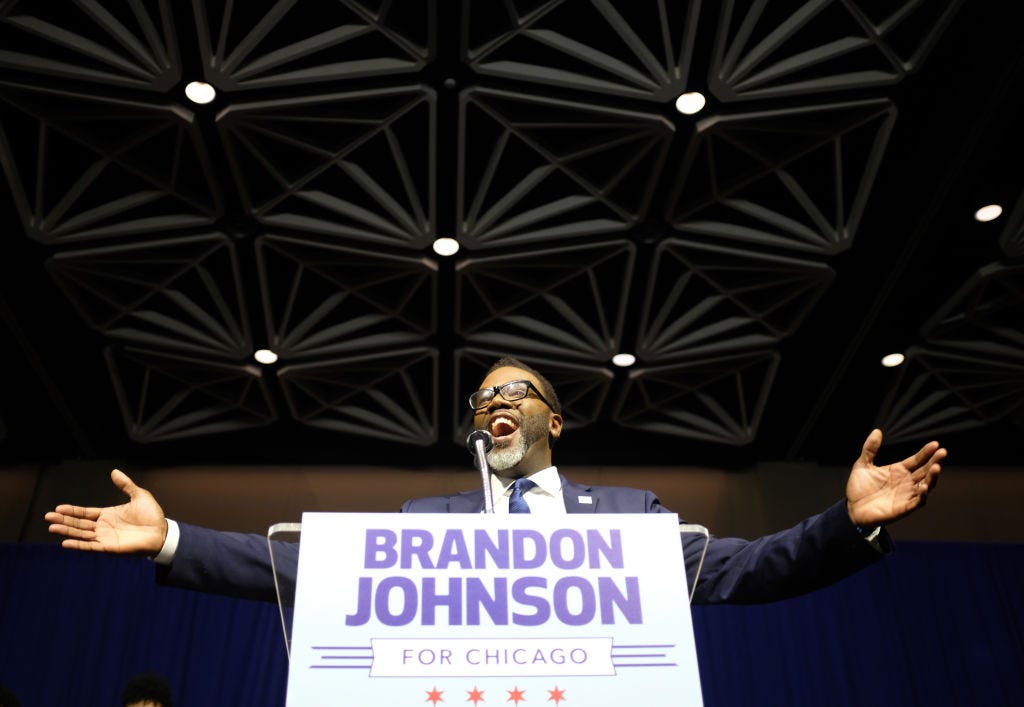Progressive Governance Gets Its Test
The Brandon Johnson era begins
On May 15th, Brandon Johnson will become the next mayor of Chicago. Political triumphs are not always, from an ideological standpoint, so unambiguous, but this one managed to be. Johnson, a Cook County commissioner and former public school teacher, campaigned as a proud progressive in his runoff with Paul Vallas, a moderate Democrat who took endorsements from the police union and various business elites. Vallas was the candidate of the Obama alumni with distinctly neoliberal orientations. He was the kind of man who routinely became the mayor of Chicago. Now he’ll be locked out of power, perhaps for good.
Progressives, largely, don’t win many executive positions in the United States. The Democrats who become mayors and governors tend to cultivate the business ties that distinctly moderate their outlook on fiscal matters. Every Democrat, these days, is a social liberal, but that hardly counts for anything anymore. It’s on the thornier stuff—taxes, public schools, policing—where divisions begin to show. The stakes for Johnson are incredibly high because Democrats like him don’t get many opportunities to govern major American cities. Eric Adams’ various failures in New York are not going to undercut the centrist Democrats in other cities who seek higher office in the future. The same is not true for the leftists who campaign in Johnson’s shadow. It’s a double standard progressives must be aware of whenever they do seize power—suddenly, the scrutiny from major media organs, pundits, and voters grows quite intense.
All eyes will be on Chicago. No single mayor can dramatically lower crime, save public schools, or revitalize an urban core battered by Covid. The lingering effects of the pandemic helped to crush Johnson’s alienating predecessor, Lori Lightfoot. Johnson will be out to prove that progressives of the late 2010s variety—the types popular online, with Bernie and AOC-tinged politics—can manage enormous and unwieldy cities.



